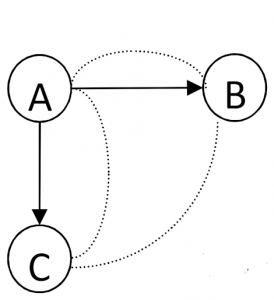The present article provides an initial systematic analysis of how social networks influence productivity in regional agglomerations. This is accomplished by means of matched employer–employee data for the entire Swedish economy for the period 1990–2008, allowing us to construct a weighted co-worker network with aggregated tie weights on the plant level. We find evidence that increasing density of the plant-level network has a positive effect on productivity, particularly in large regional industry-clusters with high degrees of specialization. Triadic closure of ties is, however, negatively linked to productivity, suggesting the importance of nonredundant knowledge. Moreover, we find only limited support for the notion that the diversity of linkages within or across regions as such is beneficial for productivity. Instead, we show that the degree of specialization conditions the extent to which both linkages to related industries in the region and nonlocal ties are beneficial. Our results thus suggest that having dense social networks is a crucial feature of high-performing agglomerations, and that interindustry, as well as interregional, linkages are compensatory in cases when sufficient industry specialization is absent.








